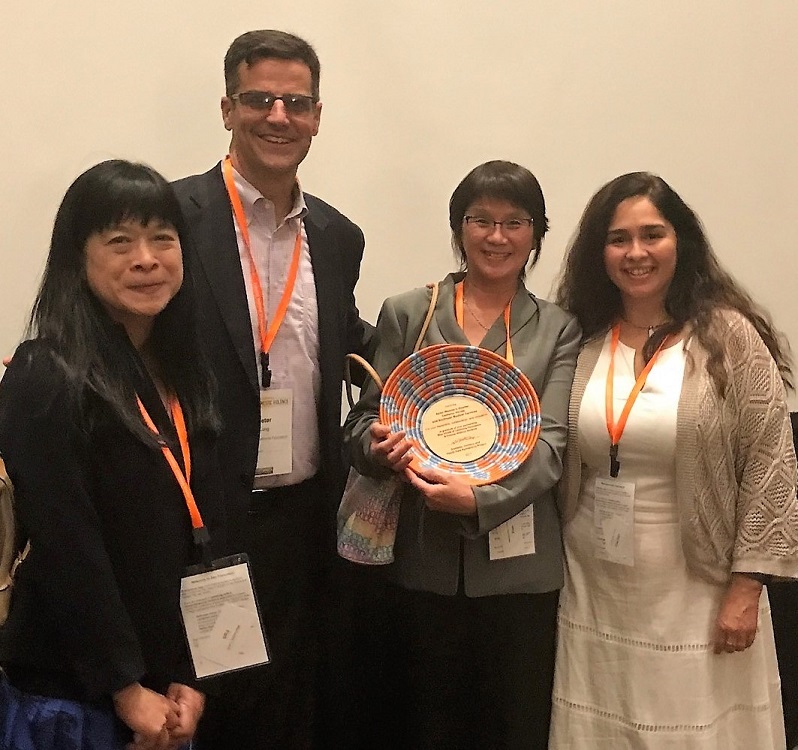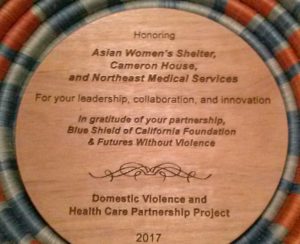
Our Social Services Ministry has always been hard working and full of activities. Not only do they provide crucial services in Cancer Support, Case Management, Counseling, Parenting Workshops and ESL and Computer classes, they’ve spent the last three years collaborating with Asian Women’s Shelter (AWS) and North East Medical Services (NEMS) to develop a new, cross-disciplinary model to healthcare. Blue Shield of California Foundation, with support from Futures Without Violence, funded 19 partnerships of domestic violence (DV) agencies and healthcare organizations throughout the state of California. The goal was to better meet the needs of DV survivors by making access to care easier and more streamlined. The result was more comprehensive and less fragmented services – and the beginning of a systemic change in responding to DV.
With one in four women experiencing domestic violence in their lifetimes [1] and one in three teens experiencing dating violence [2], we can no longer claim that DV is a private, family matter. It is a public health matter – an epidemic – that leads to poor mental health, substance abuse, increased risk of suicide, and chronic conditions like heart disease and stroke. Recognizing this connection between domestic violence and health care, Blue Shield of California funded a collaboration to integrate medical and DV services. Through a competitive application process, 19 teams of domestic violence organizations and health care facilities throughout California were selected to create a cohesive response to domestic violence survivors. Cameron House was chosen for the San Francisco team, along with Asian Women’s Shelter (AWS) and North East Medical Services (NEMS).
Although we had worked with AWS and NEMS informally in the past, our partnership created the opportunity to bridge our services and create a safety net for DV survivors. Each of us had complementary areas of expertise, which we combined to develop our partnership goals.

And NEMS provided Cameron House and AWS training on their primary care and dental services, as well as patient eligibility, which enables us to improve healthcare access for our clients.
Cross-sector healthcare partnerships are a wonderful model for promoting positive health outcomes and supporting widespread effective services. Through the funding from Blue Shield Foundation, the 19 California teams integrated health care and domestic violence systems across the state. They were highly successful in forming cross-disciplinary partnerships that expanded their scope of services and created a more comprehensive, and less fragmented, program of wellness. Futures Without Violence is already engaged in statewide policy conversations to broaden these partnerships with programs like the California Department of Public Health and California Family Health Council. In fifty years from now, when we look back to the critical groundwork for collaborative services, we’ll see that Cameron House was, once again, a catalyst for change.
[1] www.domesticshelters.org/domestic-violence-articles-information/faq/domestic-violence-statistics#.Wg486kqnGUk [2] www.standffov.org/blog/